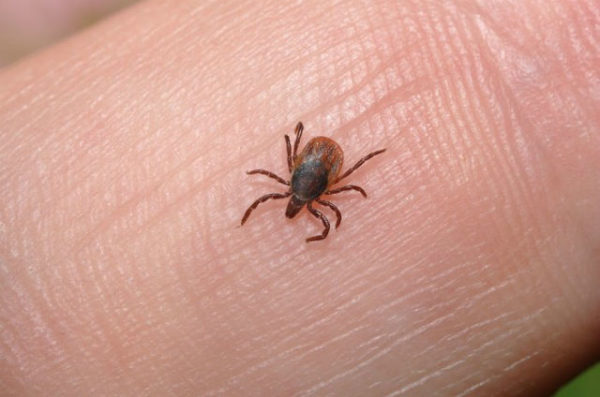Rickettsia has been detected in 10 people so far this year in Yucatan; at least two children died of this disease in 2016.
MERIDA — Its symptoms are similar to those of dengue or chikungunya, but it is a disease called rickettsia, which is transmitted by ticks. Currently 10 cases have been detected, but last year there were 110 cases, and two children died.
Due to the hot weather, health authorities warn of the risk of more cases of this disease causing death, so they recommended more hygiene.
The general coordinator of the Program of Prevention and Control of Zoonotic Diseases of the Health Services in Yucatán, Daly Gabino Martínez Ortiz, said that for two years they have detected an increase of cases of this disease, that is associated with the presence of ticks, and it is a serious problem, because if it isn’t attended quickly the patient could die.
The specialist said that although the cure is cheap, the real problem is the diagnosis, as it mainly affects children who arrive with very advanced symptoms after visiting three or four doctors that misunderstood their symptoms and recommended the wrong treatment.
Symptoms include fever, bruising, bleeding, peeling of the skin on the palms of the hands or feet, necrosis, and loss of limbs in more advanced cases because blood of clots in the veins causing thrombosis or plugging of the veins causing the blood to not reach the brain.
According to the specialist, rickettsia attacks children because they are in greater contact with dogs or cats, and it is in these cases that the tick seeks moist and dark places to stay as the foot or the navel, where it pierces the skin with a kind of hook that forms with his mouth, in addition to having glands on the sides that place a sticky substance so that it does not fall. When they are removed by force, the head remains and the mouth-hook on the skin could drive to an allergic reaction.
“But in addition, the tick sucks the blood and inoculates anticoagulants and it is where it injects the rickettisa, but also there are several diseases that it can transmit,” he says.
Faced with this situation, a pilot program of basic sanitation was implemented in several parts of the city where possible cases were detected, and when visiting the houses, no matter the social condition, unhygienic conditions were detected.
“We thought it was limited to poverty but it was not so since there were houses with a pool that was lined with ticks in the living room, in addition to messy patios and with pets and animals,” he said.
For more information on Medical Tourism go to http://www.yucatanhealthcare.com/?lang=en
Source: laverdadnoticias.com




